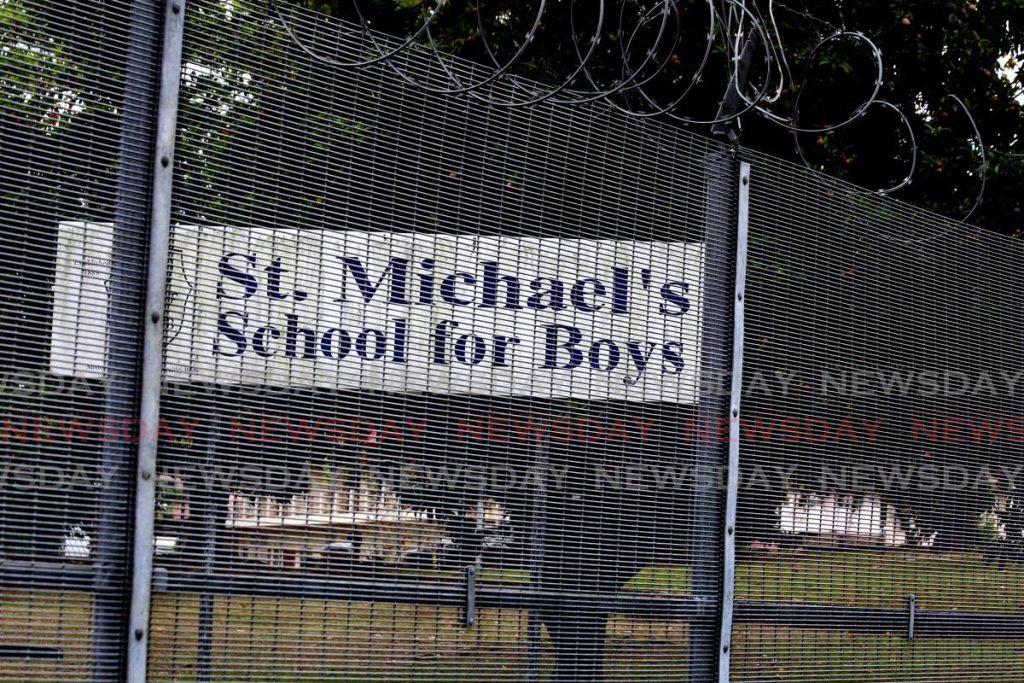Failing our boys

TTUTA
TWO MORE boy children killed. What’s new? Chalk it up to gang violence. No national alarm and outrage. This is the old normal. Who cares? Even our boys now consider themselves as dispensable, given what they concede to teachers. First disengagement, then internal dropout and ultimately total rejection of schooling.
Not only are they underachieving at all levels of the formal school system, but many have also given up on school all together as an avenue for a better life and, worse, many lose optimism from a tender age, accepting the inevitable while still in the prime of their lives.
Their deeply ingrained notions of marginalisation and disenchantment are not even sought by significant adults in their lives or those in authority, so they suffer in silence until they feel sufficiently empowered via gangs and guns to exact revenge on a society they perceive deprived them of a valued place.
How do we extricate ourselves from this callousness that has prevailed upon our society? While there are many cultural, social and economic factors contributing to this state of dehumanisation of many of our young males, a carefully reconfigured educational approach must be a main pillar of the reconstruction necessary to retrieve them from continued annihilation. Notions of schooling, especially regarding our boys, must be retrofitted with revolutionary ideas to close the widening gaps that they are steadily falling through.
Marc Jackman and Judith Morrain-Webb (2019) in their study, “Exploring gender differences in achievement through student voice: Critical insights and analyses,” opted to explore the issue from the perspective of students themselves, interrogating students’ understandings of the issue. Their findings are quite insightful to teachers, confirming what many of us already know from our daily practice.
The study underscored the need for teachers and those in authority to truly listen to our students, seeking to understand their circumstances, validating their existence in and out of classrooms, teaching the human rather than the curriculum, judging their worth, not exam scores.
Our obsession with high-stakes evaluations makes it is easy to lose the humans in the educational equation. This myopic approach to education continues to have the intended outcome of class and race differentials, despite the supercilious proclamations of those in authority consistently verbalising politically palatable platitudes. Minds preoccupied with emotional pain, anger and resentment will never present fertile ground for the anchor of academic content conceived in inequity.
High-stakes examinations hold no significance to a young man who feels neglected and abandoned by significant adults who failed to care enough for him; to prepare him for schooling by investing time and effort to teach life skills such as self-regulation, limits of behaviour, discipline to function in a regulated environment or even the need to dream of a better life via empowerment and the enlargement of his choices with persistence and sacrifice.
Armed with such social deficits, he is destined to failure, a fact he perceives from a tender age owing to his unacknowledged intelligence, and so he abandons the battle, convinced the odds are against him. Schooling then becomes a question of “marking time” while simultaneously surveying the external landscape for alternative options – unskilled employment, crime, gangs. By this time enough people would have avoided seeing or hearing him until he becomes a statistic for politicians to hurl at each other. Deviant and menace are his new credentials.
Good teaching, predicated on principles of dedication, commitment, professionalism and genuine caring for one’s charges, regardless of their socio-economic backgrounds, can significantly arrest the continued underachievement and marginalisation of our boys.
Curriculum must be adapted to ensure relevance and meaning, especially for boys from impoverished backgrounds. Subconscious gender stereotyping and prejudices by teachers have been cited by many boys as favouring girls, consistent with the feminisation of schooling hypothesis. While they may not verbalise it, their behaviours reveal a politically inconvenient perception that the focus on female empowerment and gender equity works to their detriment – a reverse gender discrimination discernment that must be consciously addressed by teachers in co-educational school settings.
Reflective practice, acknowledging the reality of the differentiated classroom, the need to cater to the variation of learning styles, intelligences and aptitudes of all learners, ensuring no one in the class feels alienated is the new teaching normal. Many of our boys require greater levels of scaffolding and coached practice, exciting their cognitive abilities through affective and psycho-motor-based activities. Deep and honest introspection will reveal that our boys are failing because schooling is failing them. Teachers represent the last hope for many.


Comments
"Failing our boys"